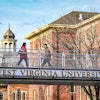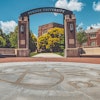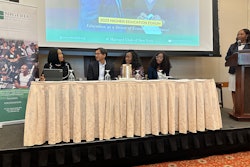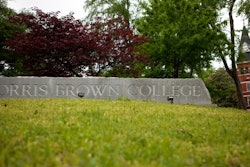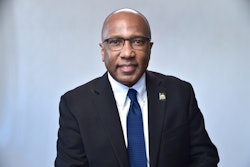When officials at Xavier University of Louisiana secured the support they needed to start a Confucius Institute on campus, it helped the university become the first HBCU to land the program meant to promote Chinese language and culture.
Beyond that distinction, university officials also succeeded in taking a critical step toward reaching a goal to offer a more globally relevant education.
Though Xavier’s selection as a Confucius Institute site was first announced after a trade and cultural exchange mission that the National Urban League led to Beijing in 2010, it is a feat university officials are trumpeting anew now that the university formalized the arrangement.
This semester, the university is offering courses in Chinese language, art, music and natural medicine, as well as opportunities for students to study these things in China.
University officials hope the initiative will help make Xavier students more competitive within the global economy.
“We can no longer prepare students [only] for local, regional or national marketplaces,” said Dr. Monique Guillory, special assistant to administration at Xavier. “Any institution that is looking at its sustainability and preparing students adequately for the future has to think internationally, globally, and HBCUs are no exception to this.”
Through an agreement signed in December, Xavier is partnering with Hebei University in Baoding, China, to establish a Confucius Institute on its campus. The Confucius Institute is overseen by Hanban, a Chinese-based organization affiliated with the Chinese Ministry of Education to provide Chinese language and culture services worldwide. There are currently 353 Confucius Institutes throughout the world.
Hanban is providing $150,000 for Xavier to get the program started, and the university is expected to secure matching funds, said Dr. Loren Blanchard, senior vice president for academic affairs at Xavier who has been heading up the Confucius initiative.
One distinct aspect of the Confucius Institute at Xavier is that it will involve the school’s College of Pharmacy and the study of traditional Chinese herbal medicine under an instructor from Hebei. Hanban will cover the instructor’s salary while Xavier will cover the instructor’s room and board. Hanban also will pay for Xavier students who have taken Mandarin to study the language further in China.
“All our students will learn more about how medicine is done in China as compared to the way that we teach, which is based on the Western model,” Blanchard said. “We’re also going to take students and send them to China to complete a rotation that will give them the opportunity not only to take the information they’ve learned from faculty members but apply it.”
Xavier also will team up with Hanban to provide instruction in instrumental music and visual art—with Xavier students learning more about such music and art from China, and students at Hebei learning more about African-American art and music. The agreement with Xavier and Hebei University comes at a time when there is an increased emphasis at the federal level on cross-cultural exchange between the United States and China in the realm of higher education.
For instance, under the Obama administration, the Department of State in 2010 launched the “100,000 Strong” initiative to “increase dramatically the number and diversify the composition of American students studying in China.”
“The need for Americans to gain greater exposure to and understanding of China is clear,” a State Department statement says. “There is perhaps no more important or complex relationship in the world than that between the United States and China in terms of securing global peace and security.”
With Xavier being an HBCU, the partnership with China will be distinct in that it will transcend national interests and examine historic and existing ties between China and the African diaspora.
For instance, Guillory noted connections between Chinese revolutionary thought and certain offshoots of the civil rights movement, such as the Black Panther Party.
“We think this will be a really rich and really kind of highly engaging intellectual exchange,” Guillory said.
The connections are current as well.
“China is changing the face of Africa,” Guillory noted of the country’s increasingly significant role in the development of Africa’s infrastructure and commerce. “There’s a lot of debate and theory about these investments, but the reality is China’s presence in Africa is probably one of the most transforming things that have happened to Africa since the post-colonial era.”
HBCUs, Guillory said, should take an interest in what is happening in the developing world, “and China is at the heart of it.”

